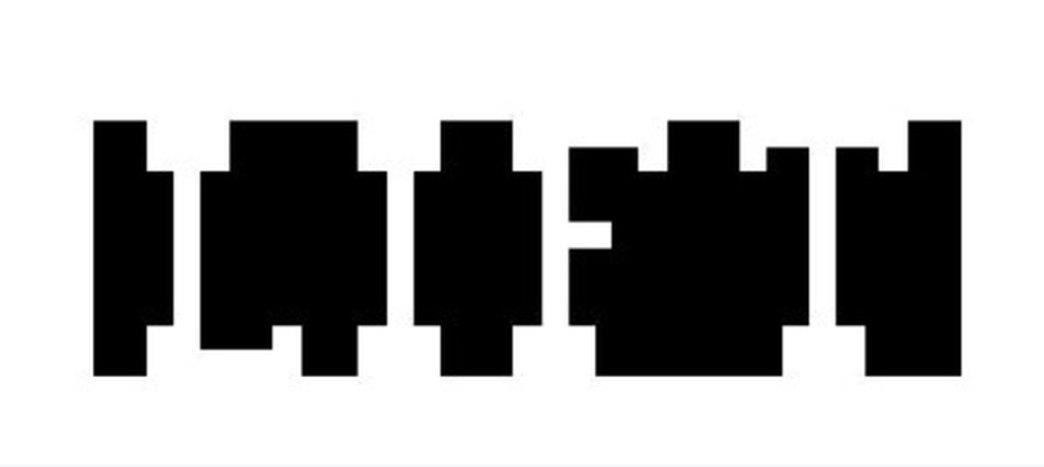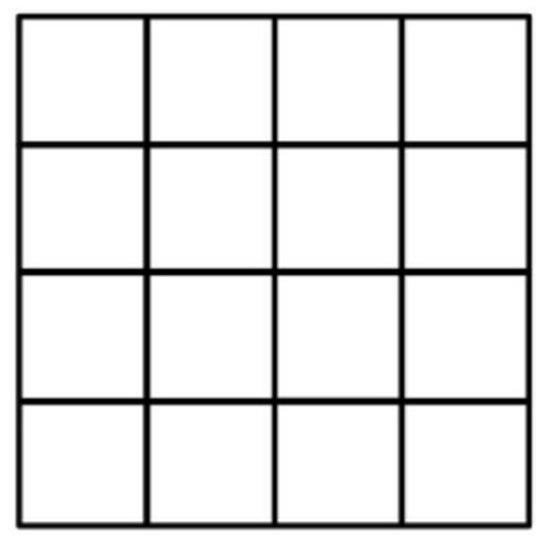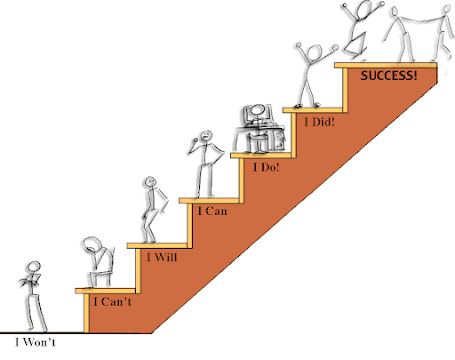-
Earth Science Journal
#1 Why is science important?
1. What do you see in this image?

2. How many squares are in this image?

What are your thoughts on the above metaphors?
3. On a scale from 0-10, how would you rate Science? Why?

Steps to Success!

Which step are you on?
Where are you headed?
4. Is being wrong bad? Explain.
Your answers on the Google form were fantastic!
"Mistakes are the portals of discovery." -James Joyce
Wrong ≠ Bad
To err is human!
To acknowledge error is learning!
To admit error is strength!
Understanding error leads to wisdom!Science is a great way to find out what is true!
5. I think you should feel proud when you understand that you are wrong!
Why would I think such a thing?

Understanding and admitting being wrong means that you have learned something!
You now have more (hopefully rational) reasons for your perspective.
These epiphanies should be celebrated! And shared!
6. Watch the above video and express your thoughts.
7. What is your favorite food?
Was it always your favorite?
Do you think that it may change one day?
8. Why do I need to know this?
I often hear this question as a teacher.
Students often say, "When will I ever use this in my life?"
My answer is: I don't know.
How are you able to use skills if you never learned them?
You never know what doors you will open with knowledge!
Every door opened can lead to another world of possibilities!Like your favorite food, you would never know how delicious it tastes unless you first gave it an honest try.
Knowledge expands your horizons to possibilities that you don't even know exist.Some people stick with baby food!

Absorb all you can from every opportunity, for you never know what may become your favorite!
-
Listen to each scientist's viewpoint in the videos below, then summarize their thoughts about science in a short paragraph. You must listen to the videos to write down their ideas. Please use your headphones.
-
The Key to Science (and Life) Is Being Wrong
By Steven Ross PomeroyIn 1964, the occasionally enigmatic but always energetic physicist Dr. Richard Feynman gave a lecture at Cornell University to a packed hall of eager, young scholars. Feynman’s demeanor was crisp and purposeful that day, a style reinforced by his sharp appearance. The professor’s hair was neat and tidy, and he was keenly attired in a trim, tailored suit.
His right hand grasping a piece of chalk, his left hand nestled in his coat pocket, Feynman started to speak. “I’m going to discuss how we would look for a new law,” he said in his unvarnished Queens accent, referring to his work as a theoretical physicist.
Feynman walked over to the chalkboard and began to write. His oration continued, almost in a manner synced with his scribbling. “First we guess it… Then we compute the consequences of the guess to see what it would imply. And then we compare those computation results… directly to observation to see if it works.”
Feynman paused, removed his left hand from his coat pocket, and strode back over to the lectern to briefly view some notes. He then launched right back into his lecture.
“If it disagrees with experiment, it’s wrong,” he asserted, craning his neck forward and adroitly pointing his left hand at the chalkboard to accentuate the point. “In that simple statement, is the key to science.”
“It doesn’t make any difference how beautiful your guess is,” Feynman proclaimed, gesticulating in wide, circular, somewhat flamboyant motions. “It doesn’t make any difference how smart you are, who made the guess, or what his name is. If it disagrees with experiment, it’s wrong. That’s all there is to it.”Feynman was absolutely right!
A good scientist must be willing to be wrong. Such an inclination is liberating, for it allows him or her to investigate potential answers — however unlikely they may be — to the difficult questions inspired by this vast, wondrous universe. Not only that, a willingness to be wrong, frees a scientist to pursue any avenue opened by evidence, even if that evidence doesn’t support his or her original hunch.
“The hard but just rule is that if the ideas don’t work, you must throw them away,” The great science communicator Carl Sagan wrote. “Don’t waste neurons on what doesn’t work. Devote those neurons to new ideas that better explain the data.”
Sagan’s candid advice was perfectly followed in 1998 when two highly competitive groups of scientists from Harvard and Berkeley were racing to find the rate at which the universe’s expansion was decelerating. It was a high-stakes contest, for a Nobel Prize was thought to be on the line.
But to both groups’ astonishment, the data ended up pointing in precisely the opposite direction. The scientists found that the universe’s expansion was not slowing down; it was speeding up! “I was, quite frankly, denying [it] was happening,” Harvard’s Brian Schmidt reportedly said. But because Schmidt and his colleagues overcame their disappointment and were willing to be wrong, the world learned something entirely new about the cosmos.
Questions
9. What, according to Richard Feynman, is the key to science?
10. According to the article, why is the "willingness to be wrong" liberating?
11. What did Carl Sagan mean when he said, "Don’t waste neurons on what doesn’t work."
12. What did scientists think was happening to the expansion of the universe and what did they discover by following the evidence?
Reflection: Why is science important?
Choose your top three reasons why you think science is essential in your life and explain why.Write this reflection down clearly in three separate paragraphs.
-
BONUS!
Read and summarize (pick your chapter) of Carl Sagan's book

